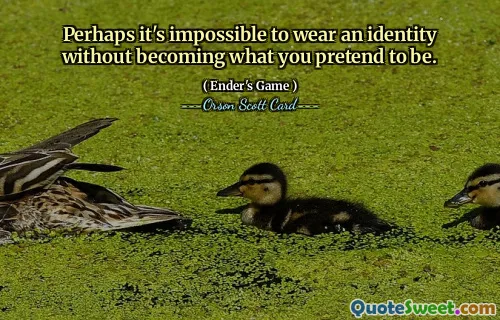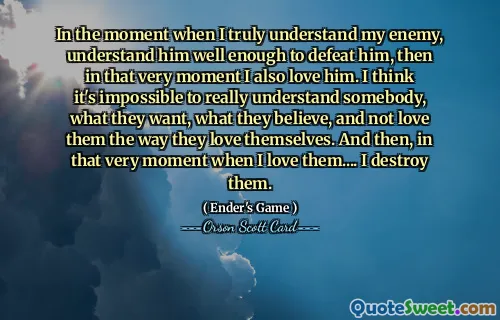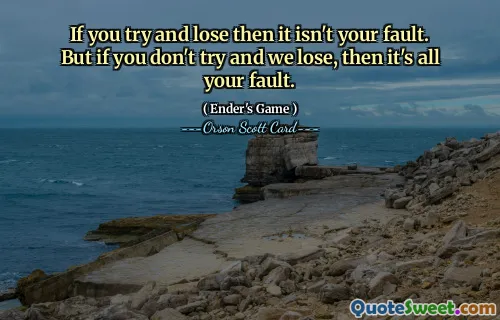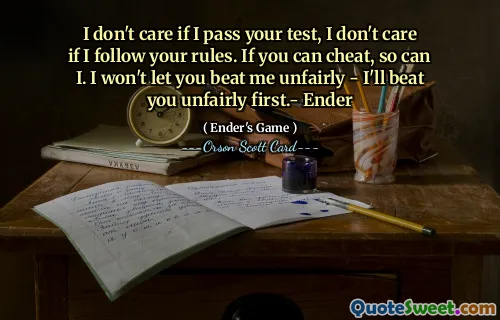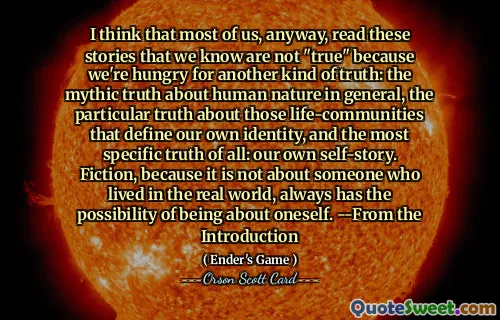
Ender nodded. It was a lie, of course, that it wouldn't hurt a bit. But since adults always said it when it was going to hurt, he could count on that statement as an accurate prediction of the future. Sometimes lies were more dependable than the truth.
In "Ender's Game" by Orson Scott Card, Ender reflects on the nature of truth and deception, especially in the context of pain. He acknowledges that the adult assertion that something “wouldn't hurt a bit” is not honest, yet he recognizes it as a reliable indicator of what’s to come. This introspection suggests a deeper understanding of the complexities of communication and the often misleading comfort of false reassurances.
Ender's realization underscores a profound theme in the narrative: sometimes it is easier to rely on comforting lies than face harsh realities. Through this lens, the passage highlights the struggle between innocence and the painful truths of adult life, illustrating how young individuals like Ender grapple with the expectations and contradictions of the world around them.
